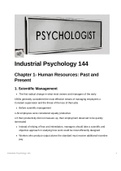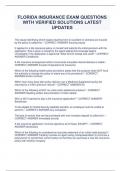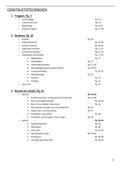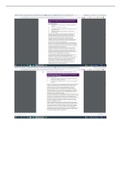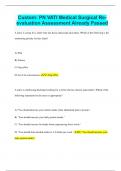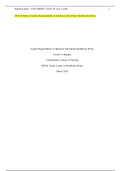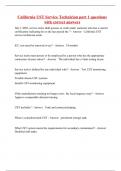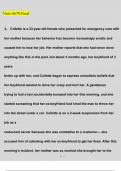Resume
Summary Industrial Psychology 144, lecture, slides, text book summary and notes.
- Cours
- Établissement
Stellenbosch First year industrial psychology 144 notes, text book summaries and lectures. Using these notes I got 71% for the final grade. it is clear, precise and a saving grace before A2 exams.
[Montrer plus]
